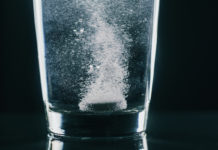Researchers have found that patients taking potassium supplements together with loop diuretics for heart failure have better survival rates than those taking diuretics without potassium. The also revealed that the preventive benefit increases with higher diuretic doses. The team from the Perelman School of Medicine at the University of Pennsylvania published their findings in the July 16 online version of PLOS ONE.
Loop diuretics – a type of diuretic or “water pill” named after the part of the kidney it acts on – are commonly used in the treatment of heart failure. Loop diuretics act at the ascending loop of Henle in the kidney to help the body push out extra fluid that can accumulate in the lungs or legs and ankles (lower-limb edema or swelling) when the heart is unable to completely pump blood throughout the body. But Loop diuretics may also cause the body to eliminate excessive amounts of potassium, which might be expected to increase mortality from heart arrhythmias. As a precaution, many doctors prescribe potassium supplements to their patients receiving loop diuretics.
However, the survival benefit of prescribing supplemental potassium has never been studied, raising questions about whether potassium should be prescribed to all patients receiving loop diuretics.
In their study the researchers compared data from approximately 180,000 new patients put on loop diuretics plus supplemental potassium, versus an equal number of people taking a loop diuretic without supplemental potassium. The researchers found that in patients receiving at least 40 mg/day of furosemide (one form of loop diuretic), the addition of supplemental potassium appeared to reduce mortality by 16 percent, a large and statistically significant reduction.
“Our findings provide evidence that adding potassium supplementation may increase survival rates among patients taking loop diuretics,” said the study’s lead author, Charles E. Leonard, PharmD. “Nonetheless, because this is the first such study of this question, we hope that others confirm these results in independent studies.”
They also found that in patients receiving less than 40 mg/day of furosemide, potassium appeared to reduce the mortality rate by seven percent, a suggestive but statistically non-significant finding. (The overall mortality rate was about nine percent per year in the population under examination.)
The use of potassium supplementation under investigation was preventive, as opposed to being prescribed to patients who already had measured reductions in potassium. Only patients receiving supplemental potassium in solid, not liquid form, were studied, the latter possibly being indicative of an inability to swallow and therefore a marker for a possibly complicating corollary medical impairment.
These results appear to support the common (but not universal) practice of using potassium together with loop diuretics. Today, nearly 5.8 million Americans suffer from heart failure.
“Using potassium supplementation for patients receiving loop diuretic therapy may be a relatively inexpensive way to save lives,” said Hennessy. “In today’s climate of seeking cost-effective measures to keep patients healthy, this is a therapy that certainly merits additional consideration.”
Source: Charles E. Leonard, Hanieh Razzaghi, Cristin P. Freeman, Jason A. Roy, Craig W. Newcomb, Sean Hennessy. Empiric Potassium Supplementation and Increased Survival in Users of Loop Diuretics. PLoS ONE, 2014; 9 (7): e102279 DOI:10.1371/journal.pone.0102279














